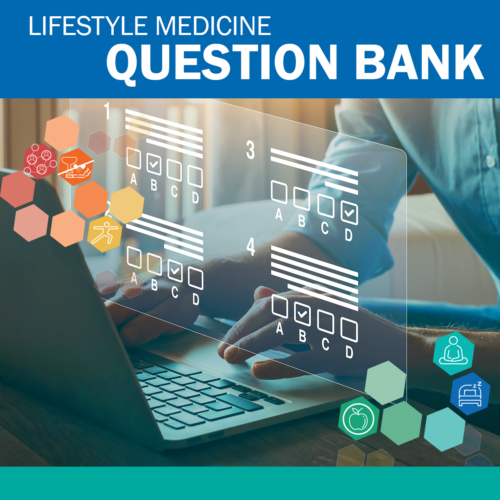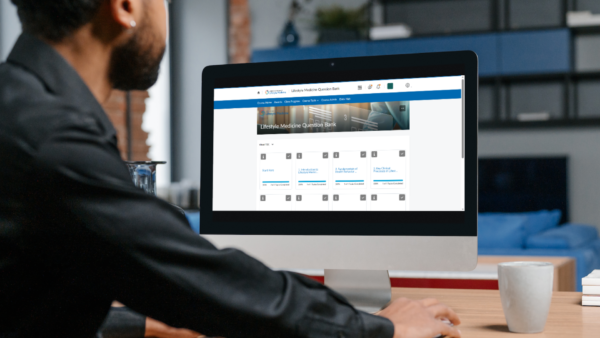If you are a clinician who:
- Is registered or considering registering to sit for the ABLM exam and would like additional support to feel confident of your potential success
- Wishes to test your understanding of the pillars of evidence-based lifestyle medicine and how it can prevent, treat and reverse disease
- Would like to arm yourself by studying the evidence-based lifestyle medicine content that will be tested on the Lifestyle Medicine Board Certification Exam
- Are already certified in lifestyle medicine and would like to stay up to date and earn ABLM MOC to maintain certification
- Wants to prepare on your own time and at your own pace
This course is for you.
This course consists of:
- 200 multiple choice practice questions organized into 10 topics and quizzes that align with each the ABLM exam competencies
- Explanations and supporting references are provided for each question
Course Pricing
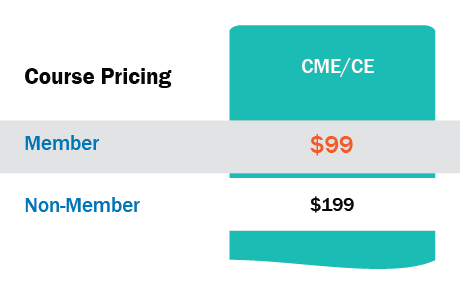
10 Exam Topic Quizzes included in this Course
- Introduction to Lifestyle Medicine – 8 questions
- Fundamentals of Healthy Behavior Change – 20 questions
- Key Clinical Processes in Lifestyle Medicine – 16 questions
- The Role of Physician Health and the Physician’s Personal Health – 8 questions
- Nutrition Science, Assessment and Prescription – 52 questions
- Physical Activity Science and Prescription – 28 questions
- Emotional and Mental Well-Being, Assessment and Interventions – 20 questions
- Sleep Health Science and Interventions – 16 questions
- Managing Tobacco Cessation and other Toxic Exposures – 16 questions
- The Role of Connectedness and Positive Psychology – 16 questions
What are the credentials of the curriculum authors?
The question writers for the Lifestyle Medicine Question Bank are clinical subject matter experts in their fields, including faculty who are board-certified in lifestyle medicine, internal medicine, preventive medicine, family medicine, obesity medicine, psychiatry, addiction medicine, tobacco treatment, sleep medicine, sports medicine, and health and wellness coaching. They have achieved professional clinical degrees and have substantially contributed to the research and advancement of the lifestyle medicine profession.
Who will benefit from this course?
The Lifestyle Medicine Question Bank is designed to provide a review and prepare candidates to sit for and successfully pass the lifestyle medicine board certification exam. It is applicable to physicians, physician associates, nurse practitioners, pharmacists, registered dietitians, and others seeking to become certified in lifestyle medicine.
What is the format of the content?
This self-study course consists of 200 practice questions. The questions are organized into 10 topics and quizzes that align proportionally with each of the ABLM exam competencies. Questions are multiple choice format with one correct answer and explanations/supporting references provided for each question. The course is completed online via the ACLM My Learning Center. Users are able to navigate the course and complete questions at their own pace.
Is this content accredited for CME?
This course is available as a CME/CE accredited course. Please click here to see the full accreditation statement. The course not only provides CME/CE, but also has been approved by ABLM to offer MOC credits.
Will I receive a certificate of completion?
All participants who complete this 8-hour CME/CE accredited course will be eligible to receive an online CME/CE certificate of completion.
How recent is the content?
The questions were reviewed and updated August of 2023. The content reflects current research, guidelines, and lifestyle medicine clinical best practices.
How long do I have access to the content?
Enrollees will have access to online material through the term of approval which ends September 19, 2026.
If you’re interested in more information about lifestyle medicine or lifestyle medicine education, contact support@lifestylemedicine.org.
Interested in large scale training opportunities? Contact us at support@lifestylemedicine.org
Why get certified in lifestyle medicine?
Lifestyle medicine certified clinicians are trained to apply evidence-based, whole-person, prescriptive lifestyle change to treat and, when used intensively, often reverse such conditions. Applying the six pillars of lifestyle medicine—a whole-food, plant-predominant eating pattern, physical activity, restorative sleep, stress management, avoidance of risky substances, and positive social connections—also provides effective prevention for these conditions. Learn more
Related Continuing Education Offerings

Remission of Type 2 Diabetes & Reversal of Insulin Resistance
Worldwide, Diabetes is a Leading Cause of Morbidity and Mortality Yet, there is a safe, powerful and cost effective treatment and it’s time every patient, and clinician knows.
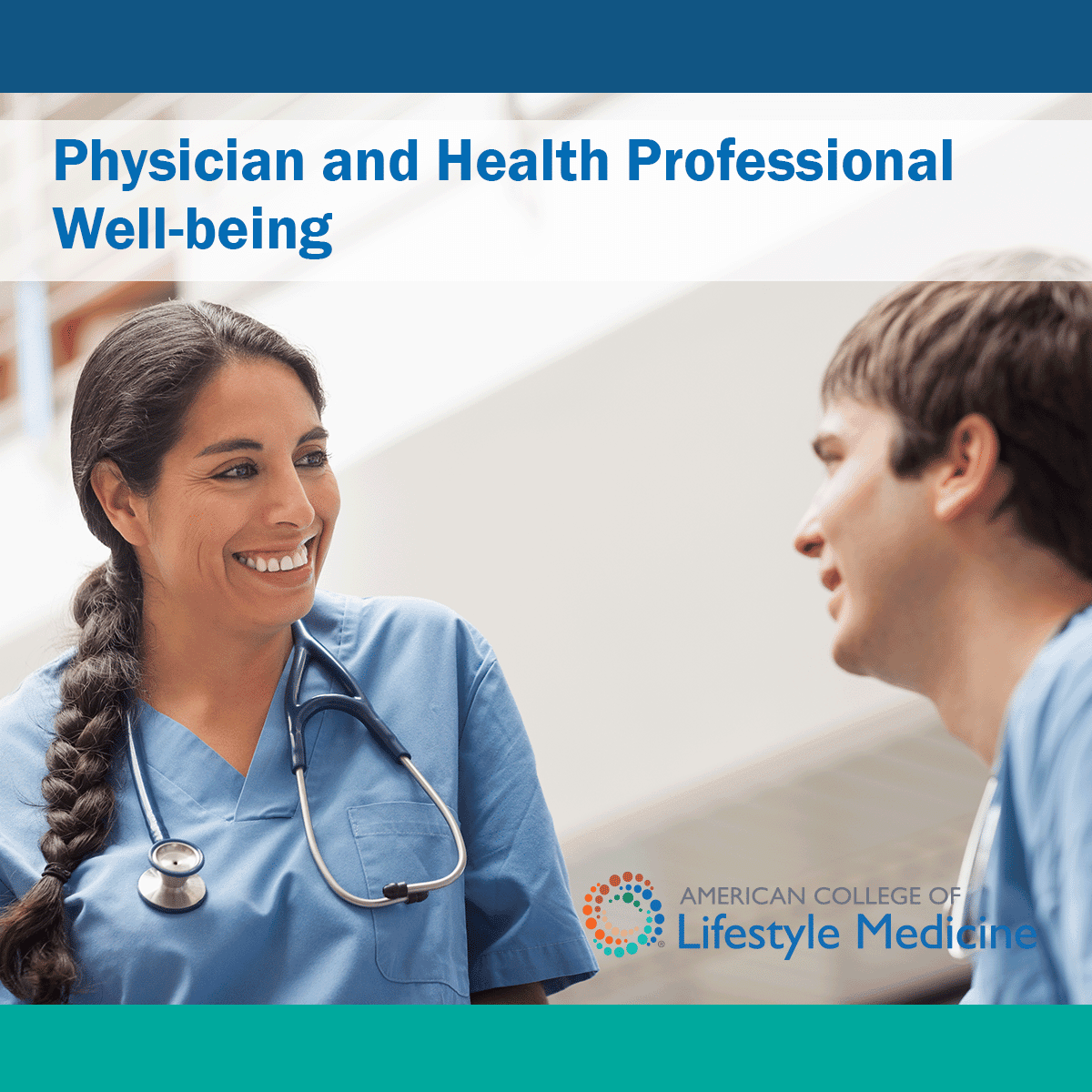
Physician and Health Professional Well-being
This course pairs a unique perspective on personal and organization wellness with a practical approach and useful supporting materials, that can build a well-being mindset and improve work life balance for yourself and others around you.
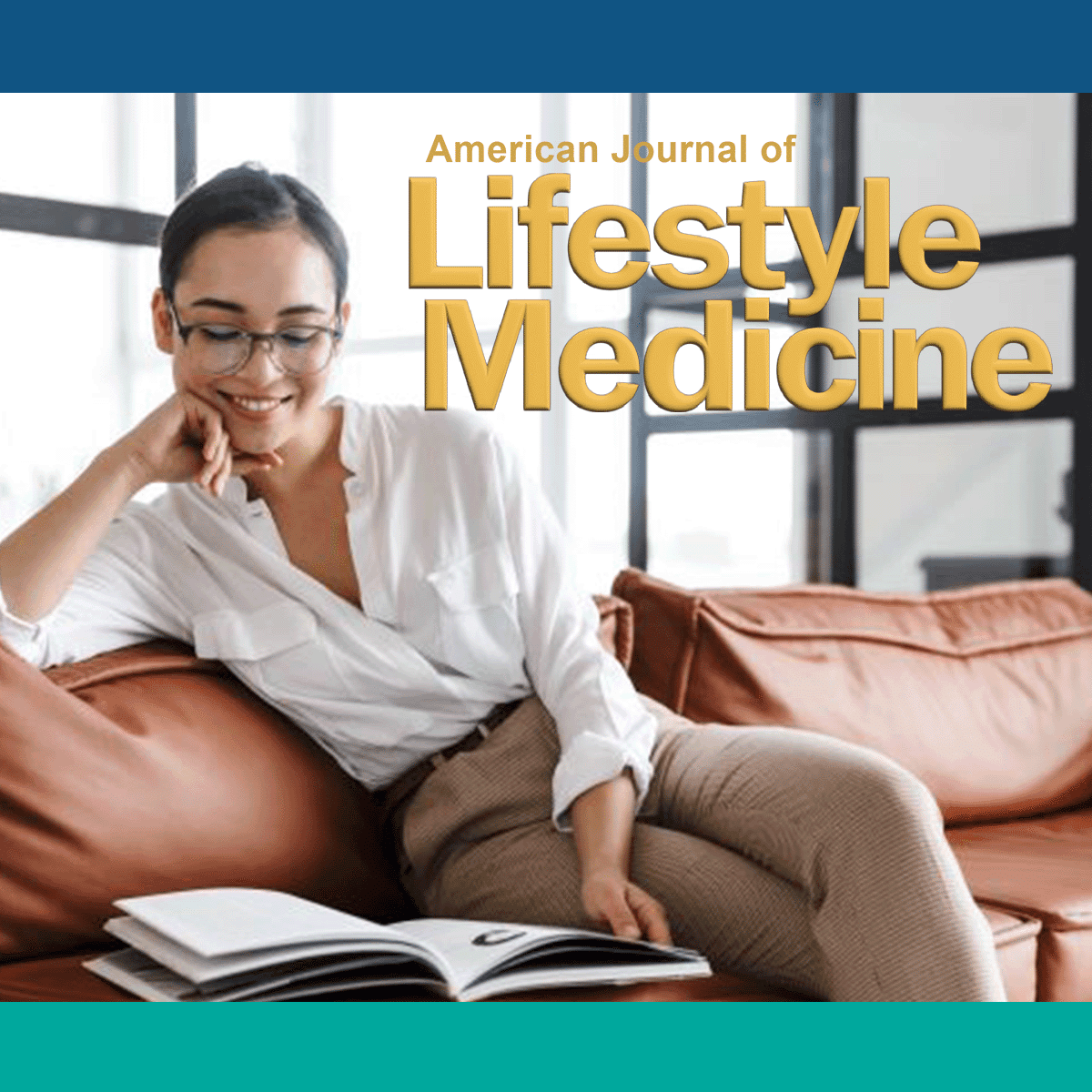
Articles as CME/CE/MOC – Free for members!
ACLM and AJLM are pleased to offer CME/CE and ABLM MOC for one (1) journal article in each of the six (6) bi-monthly AJLM issues. All 6 peer-reviewed articles with quizes are available for free to members and for $40 for non-members.
Livestream begins October 29
Earn 39 CME/CE credit Live or On Demand for up to 60 days.
Every Fall, ACLM hosts the premier continuing education event focused on lifestyle medicine – the therapeutic dose of proper nutrition, regular physical activity, social connection, restorative sleep, stress management, and avoidance of risky substances.

